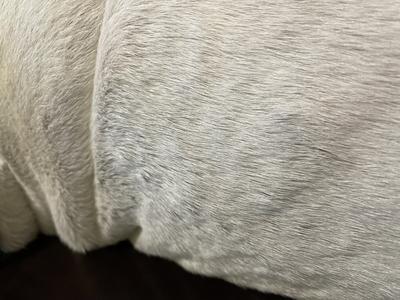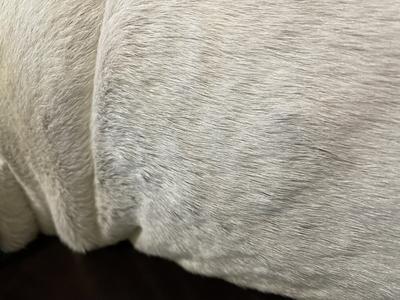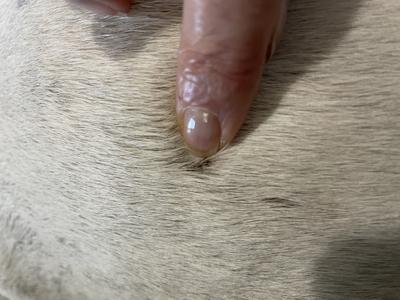Canine Persistent Skin Issue
by Kim
(Nine Mile Falls, WA USA )

Skin Lumps on Frenchie
My frenchie is covered with lumps that eventually dry and can be scraped off.He had these many years ago and vet couldn’t determine cause(not bacterial)so I tried different foods grain free and single proteins and changed proteins after a few years when they started appearing again. Also went soy, pea, potato free. He was on the last food for 3 years and when these appeared again I tried three new limited ingredient protein foods and now on the salmon and ancient grains. He continues to get new lumps. At a loss. Any advice?
Editor Suggestions, Canine Skin Lumps
Hi Kim,
Sorry to hear about your Frenchie's skin problem. Here are a few thoughts on the potential causes and treatment of the lumps.
Before I get started, it is important to note that it is always best to consult with your veterinarian or a veterinary dermatologist, as they will be able to examine your dog and run any necessary tests.
Here are some thoughts:
Dietary Concerns: It seems you have explored many different food options, focusing on grain-free and single protein diets. While dietary allergies can manifest in skin issues, it's not certain that this is the underlying cause for your dog's condition, especially if changing the diet has not led to lasting improvements.
Environmental Allergens: Consider exploring
Parasites and Fungus: Ensure that parasites like mites or fungal infections are not the issue. Some of these conditions may not be bacterial but still require medical intervention.
Skin Care Routine: Regular grooming, bathing with a gentle hypoallergenic shampoo, and avoiding irritants can sometimes improve skin conditions. If you haven't already, you might try incorporating these practices.
Veterinary Specialist: If your regular vet has not been able to diagnose the problem, it may be beneficial to see a veterinary dermatologist, who specializes in skin conditions. They may be able to conduct more specific tests and provide a specialized treatment plan.
Medication: Sometimes, prescription medications or topical treatments can be necessary to address underlying inflammation or other skin issues. Only a veterinarian can prescribe these, so discussing the ongoing problems with a professional is crucial.
I hope some of these ideas help. Please keep us up to date on your dog's skin condition.
Jeff
Editor and Publisher
Dog Health Guide
Please note: This information is intended to complement, not replace, the advice of your pet's veterinarian. Always consult a vet for professional medical advice about your pet's health.
Join in and write your own page! It's easy to do. How? Simply click here to return to Allergy.






